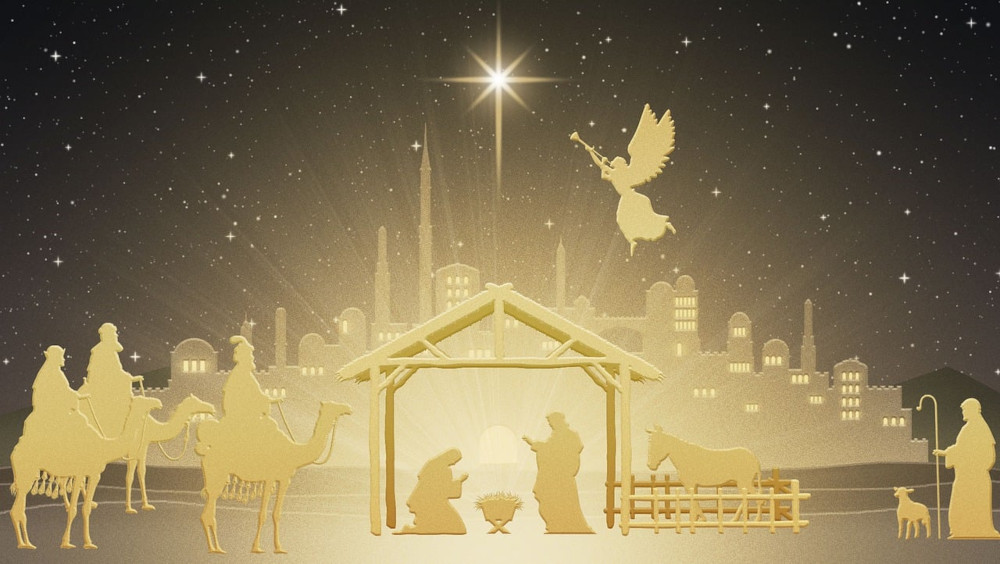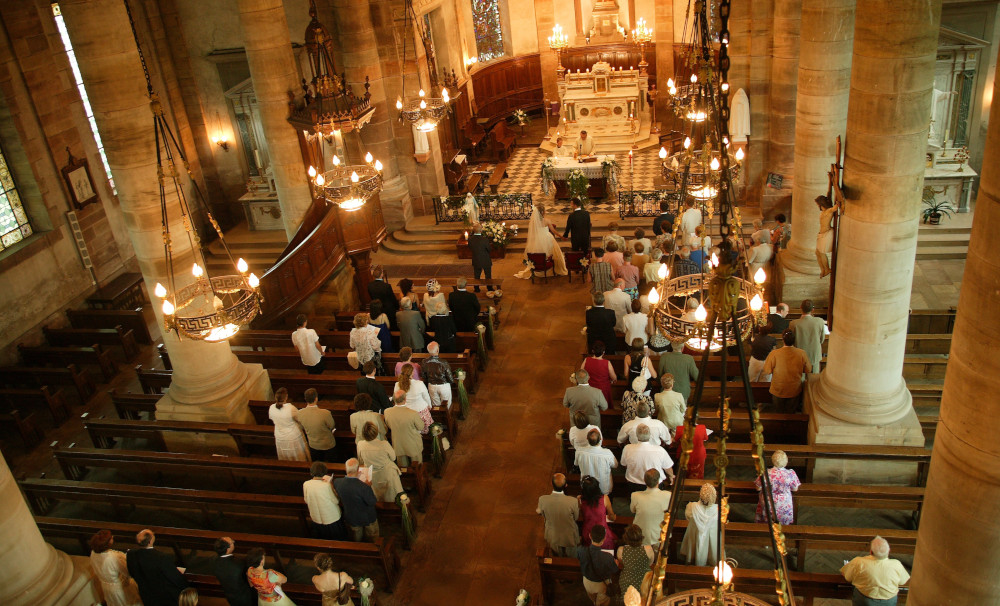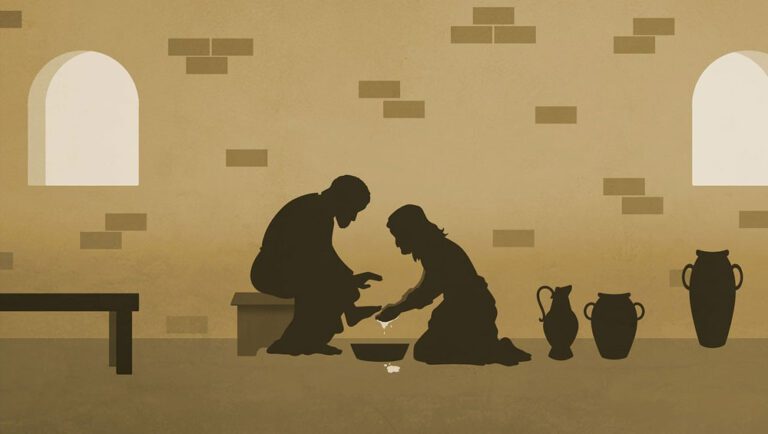Christmas is the most popular and widely celebrated holiday in the world.
However, there has been an ongoing debate among Christians about whether celebrating Christmas is biblical and appropriate for followers of Jesus Christ.
In this post, we’ll look at the arguments for and against Christmas celebrations from a Christian perspective. We’ll dig into the history and origins of Christmas traditions.
We’ll also discuss alternatives for Christians who don’t want to celebrate Christmas and provide guidance on how Christians can celebrate Christmas meaningfully.
A Brief History of Christmas Celebrations

While Jesus Christ was likely born in the spring, by the fourth century Christians chose December 25th to celebrate his birth.
This coincided with existing pagan Roman festivals like Saturnalia and festivals for the unconquered sun god.
As Christianity became the dominant Roman state religion, many pagan customs were Christianized and absorbed into Christmas celebrations.
The early church focused more on Jesus’s death and resurrection than his birth. But affirming Christ’s incarnation and deity became important for combatting heresies, which helped spread celebrating his birth.
Christmas trees, Santa Claus gift-giving, feasts, and merriment all originated from a mixture of pagan midwinter celebrations and legends surrounding historical Christian figures like the generous 4th-century Bishop Nicholas.
Over the centuries, Christmas grew increasingly commercialized and secularized. But even when coopted by consumerism, it remains an annual cultural touchpoint for lifting up Jesus Christ.
During the Christmas season, even nonreligious institutions highlight Jesus’s name and message through holiday music, decorations, cards, and parties.
Biblical Basis For and Against Christmas Celebrations

Potential biblical justification
- Christmas is an opportunity to proclaim salvation through Jesus Christ (Luke 2:10-11)
- The Bible permits cultural accommodation of traditions not directly forbidden (1 Corinthians 10:23-33)
- Old Testament feast days appointed by God (Leviticus 23), can apply to Jesus’s birth
- If God instituted Hanukkah, he could approve celebrating Christ’s birth (John 10:22-39)
Cases against Christmas celebrations
- No biblical commandment to celebrate Jesus’s birth
- Jesus probably wasn’t born on December 25th
- Early Christians didn’t celebrate for over 300 years
- Virgin birth itself is more theologically vital than the date
Rebuttals to arguments against
- The lack of a biblical mandate doesn’t prohibit the celebration
- The Bible doesn’t specify apostles’ birthdays but we still celebrate those
- Faith is expressed in community traditions not just in explicit scriptures
- The date is a symbolic placeholder for affirming the incarnation
There are good biblical cases to be made both for and against Christmas celebrations.
Generally, the stronger position seems to be that while the Bible neither requires nor prohibits Christmas, Christians have reasonable freedom to celebrate or not, based on their conscience and convictions before God.
“One person considers one day more sacred than another; another considers every day alike. Each of them should be fully convinced in their own mind.”
Romans 14:5 (NIV)
biblegateway.com
Christian Perspectives and Practices on Christmas

Christians hold a diversity of views on Christmas ranging from full celebration to complete avoidance:
- Fully celebrate: The majority adopt the cultural traditions & meaning of Christmas to honor Jesus
- Partial celebration: Enjoy some secular aspects but focus on Jesus’s birth and incarnation
- Christianize holidays: Redirect Santa Claus to St Nicholas, keep nativity scenes central
- Ignore Christmas: Don’t participate due to associations with paganism or commercialism
- Alternative celebrations: Observe the Advent season but not December 25th as Jesus’s birthday
Common Christian traditions and practices around Christmas include:
- Attending church on Christmas Eve or Christmas Day services
- Putting up nativity scenes and Christmas trees
- Christmas light displays and neighborhood decorations
- Caroling, concerts, and holiday programs
- Charity efforts like food drives and visiting nursing homes
- Families gather for homemade meals, baked goods, and gift exchanges
While cultural expressions vary worldwide, celebrating generosity, goodwill, and salvation permeates global Christian celebrations of Christmas.
Christmas Symbols and Meaning
Beyond the nativity imagery central to Christmas, many holiday symbols have dual secular and spiritual meanings for Christians:
- Christmas Trees – Evergreen trees represent eternal life offered through Jesus’s sacrifice. Trees were used in winter festivals long before Christmas.
- Santa Claus – Mythical figure whose roots trace back to 4th century Bishop St Nicholas, famed for anonymous gift-giving to the poor, highlighting Christian generosity.
- Candy Canes – The red and white peppermint candy signifies Christ’s sacrifice and the blood he shed on the cross to wash away sins.
- Bells – Ring out the joyous news commemorating Christ’s birth but also his future return (Exodus 28:33-35, Zechariah 14:20-21)
- Star – Echoes the Bethlehem star leading wise men to baby Jesus, a symbol of his light coming into the world (Matthew 2:1-12, John 8:12)
- Snow – Pure white snow represents the cleansing of sins through God’s grace (Isaiah 1:18)
- Christmas Cards – Extend Christ’s message of loving all people by keeping them in your heart all year.
- Gift Giving – Symbolizes God’s generosity in sending his greatest gift to the world – Jesus Christ (John 3:16)
Should Christians Celebrate Christmas with Secular Traditions?

For Christians seeking to keep Christ at the center of their Christmas celebrations, the heavy secularization and consumerism around December 25th can create obstacles. Questions come up like:
- Should we incorporate Santa Claus, reindeer, and elves into our Christmas?
- Is it wrong to buy gifts because corporations have commercialized Christmas?
- Should we skip gift-giving if we can’t afford piles of expensive presents?
There are no straightforward legalistic answers. Each family can prayerfully consider what works for them.
Adopting moderate secular traditions need not undermine sacred meaning. Santa can point back to Saint Nicholas’ Christian charity.
Affordable homemade gifts can inspire more than expensive store-bought ones. Christmas films often reorient values toward relationships over possessions.
Rather than getting sidetracked by questioning specific secular traditions, the priorities for Christians at Christmas remain exalting Christ and sharing God’s love. That guiding purpose allows flexibility in the cultural forms Christmas takes.
If certain secular associations detract from the spiritual foundations of your family, minimizing or avoiding those specific practices may be warranted. Discernment and moderation are key.
“So whether you eat or drink or whatever you do, do it all for the glory of God.”
1 Corinthians 10:31 (NIV)
biblegateway.com
How Should Christians Celebrate Christmas in a Meaningful Way?

Here are suggestions for keeping Christ at the heart of your family’s Christmas celebrations:
- Attend Advent and Christmas church services – set a spiritual focus for the season
- Read the nativity story together from Gospel accounts in Matthew 1-2 and Luke 2:1-20
- Talk about the significance of Christ’s birth and purpose coming to Earth with kids
- Watch Bible-based Christmas films dealing with the true meaning behind the season
- Do creative crafts making nativity scenes, nativity costumes, or Christmas ornaments
- Get children involved in serving others – Volunteering at soup kitchens or leading carols at nursing homes
- Focus gift-giving on charity efforts and giving essentials to those in need
- Sing or listen to sacred Christmas hymns and carols oriented around Jesus, God’s love, and salvation
The central truth behind Christmas, of Emmanuel, God incarnate dwelling among us, holds life-guiding meaning beyond any holiday festivities.
Keeping celebrations centered on family, faith, and sharing God’s grace can make for a joyful, peaceful Christmas that honors Christ.
What is the True Meaning of Christmas for Christians?

Beyond disputes over dates and pagan origins, at its core, Christmas marks a vitally important theological event for Christianity – the birth of Jesus Christ.
God took on human flesh and entered into the darkness and suffering of the world. He came to provide light, salvation, and restoration.
Christmas represents a celebration of Jesus coming to:
- Be Immanuel “God with us” (Isaiah 7:14, Matthew 1:23)
- Destroy the works of the devil through His birth, death, and resurrection (1 John 3:8)
- Offer eternal life to all who believe in him (John 3:16-17, John 14:6)
- Reconcile humanity back into relationship with God (2 Corinthians 5:18-21)
The birth of Jesus was part of a divine rescue mission to save wayward people unable to save themselves. Christmas marks the start of the redemptive story where:
- Jesus died as an innocent sacrifice for human sins (1 Peter 2:24, Hebrews 2:14-18)
- Rose again, defeated sin and death, removing its eternal penalty (1 Corinthians 15, Romans 6:23)
- Will eventually return to establish everlasting peace and justice on Earth. (Isaiah 9:6-9, Isaiah 11:1-10)
Seen in this light – as inviting people into Jesus’s eternal kingdom – Christmas moves from just a sentimental story or holiday into an opportunity for life-altering salvation impacting all eternity.
Is Christmas a Pagan Holiday Christians Should Avoid?

For Christians seeking to honor God, the pagan and secular origins of many Christmas customs raise reasonable questions about whether to participate. But there are also solid counterarguments:
Pagan origins rebuttal
- Just because pagans worshiped false gods on certain dates doesn’t prohibit Christians from redirecting focus back to Jesus
- Jewish festival Hanukkah (John 10:22-39) accommodates battle anniversaries not in the Torah but Christians celebrate it
No biblical mandate rebuttal
- The lack of a direct biblical mandate doesn’t prohibit cultural celebration traditions, otherwise, Sunday worship meetings would be prohibited
- Most biblical mandates surround Passover and Christ’s resurrection, but we apply Romans 14:5 for latitude on other observances
Winter solstice rebuttal
- Saturnalia and Sol Invicta are no longer worshiped, just winter season cultural customs empty of religious power without voluntary spiritual investment
Jesus’s actual birthday rebuttal
- We don’t know the apostles’, prophets’, or biblical figures exact birthdays but may celebrate them
- The historical date is just a symbolic placeholder for the theology of Christ’s incarnation and nativity
So while the secular and pagan origins of Christmas do raise valid questions for Christians, there seem to be reasonable biblical grounds for accommodating cultural celebrations so long as Christ remains the focus.
Individual believers celebrating or not celebrating based on their conscience and communal standards is most consistent with scriptural principles of adiaphora (disputable matters) covered in Romans 14 and 1 Corinthians 8-10.
Alternative Christmas Celebrations

For Christians who don’t wish to celebrate Christmas on December 25th due to associations with paganism or commercialism, there are church-sanctioned alternative celebrations:
Christ’s Mass
Some churches celebrate Christmas, meaning “The Mass of Christ”, during Epiphany on January 6th commemorating when the wise men visited Jesus rather than his birthdate.
Annunciation Day
Mary learning she would supernaturally conceive Jesus through the Holy Spirit is celebrated on March 25th in some liturgical church calendars rather than Christmas Day.
Advent Season
Many evangelical churches celebrate the 4 Sundays before Christmas as the Advent season preparing for the second coming of Christ, without emphasizing Christmas day itself.
Thanksgiving
American Thanksgiving began with Puritans who after fleeing England established a day to thank God for their freedom to worship and for provision. The emphasis on gratitude, family, and celebrating God’s blessings without consumerism can serve as a great alternative to Christmas.
Conclusion – Celebrate Christmas to the Glory of God Based on Conscience
So should Christians celebrate Christmas? There is no straightforward legalistic answer from the Bible.
Rather, Romans 14 and 1 Corinthians 8-10 suggest that disputeable matters are to be governed by conscience, honoring the lordship of Jesus Christ in whatever personal and communal decisions are made.
The points made above provide guidance for deciding and if participating, keeping Christ at the center rather than declaring any one position as exclusively right for all Christians.
If Christmas enhances your walk with God, then “let no one pass judgement and may no one condemn you.” But if not participating better avoids false worship or confusion, then “each one should be fully convinced in his own mind.” (Romans 14:5, Romans 14:22)
Paul further instructs on debatable issues in 1 Corinthians 10:31 (NIV),
“So whether you eat or drink or whatever you do, do it all for the glory of God.”
biblegateway.com
So celebrate or refrain from celebrating Christmas for the glory of God based on your conscience. Keep Christ the foundation throughout the Christmas season and always.

Key Takeaways: Should Christians Celebrate Christmas
- The Bible neither requires nor prohibits Christmas – latitude exists for celebrating or not based on your conscience
- Christians blend secular and sacred traditions in various ways to honor Jesus amidst holiday cultural forms
- Keep celebrations centered on Christ’s incarnation, God’s love, and sharing grace to make for a meaningful Christmas
- Individual families should prayerfully discern whether avoiding or embracing secular Christmas customs suits their faith journey
- Romans 14 and 1 Corinthians 8-10 teach disputable matters like Christmas come down to personal conscience submitted to the Lordship of Christ
Frequently Asked Questions on Christianity and Christmas Celebrations
Q. Should Christians celebrate Christmas when Jesus wasn’t born on December 25?
A. The Bible doesn’t specify the exact day Jesus was born. December 25th is a symbolic date assigned by cultural tradition centuries later.
What matters more is affirming through Advent and Christmas celebrations that Christ’s incarnation as Immanuel, “God With Us” brought salvation into the world to free humanity from sin.
Q. Is celebrating Christmas as a Christian also celebrating pagan holidays and rituals?
A. Although midwinter pagan festivals and solstice events preceded and influenced Christmas customs, Christmas today does not propagate false worship.
Its central meaning emphasizes Jesus Christ’s birth and incarnation. Using holiday cultural forms need not inherently equate to adopting the associated religious beliefs.
Q. Should Christians celebrate Christmas trees, Santa Claus, and other secular traditions?
A. Integrating secular traditions into Christmas is a complex issue that the Bible doesn’t straightforwardly answer.
Christian opinion varies from fully embracing to fully avoiding secular customs. But 1 Corinthians 10:23-31 and Romans 14:1-15 say that each believer must prayerfully follow their conscience.
If certain cultural traditions overly commercialize or dilute spiritual aspects for you, minimizing those specific practices may be appropriate.
Q. Don’t Christmas gift-giving frenzies contradict Christ’s teachings to avoid loving worldly possessions more than God and people?
A. The New Testament church fathers consistently instruct followers of Jesus to avoid greed and overindulgence in physical pleasures that can displace loving God first and foremost.
At the same time, expressing God’s generous love through exchanging gifts, especially to those in need, can reflect Christ so long as materialism doesn’t take center stage. Discernment around balancing eternal and temporal is key.
Q. Should Christians completely avoid Christmas parties since they involve drinking and other ways of acting worldly?
A. The Bible clearly warns against drunkenness and debauchery. However, having joyous community celebrations is encouraged in scriptures and church traditions.
It comes down to conscience and moderation – avoid overindulgence in food, alcohol, and other appetites that distract from loving God and neighbor, while accepting God’s gifts with thanksgiving.
Celebrating God’s salvation together during holidays and festivals is endorsed in principle while sins like gluttony, lust, and narcissism should be shunned.






